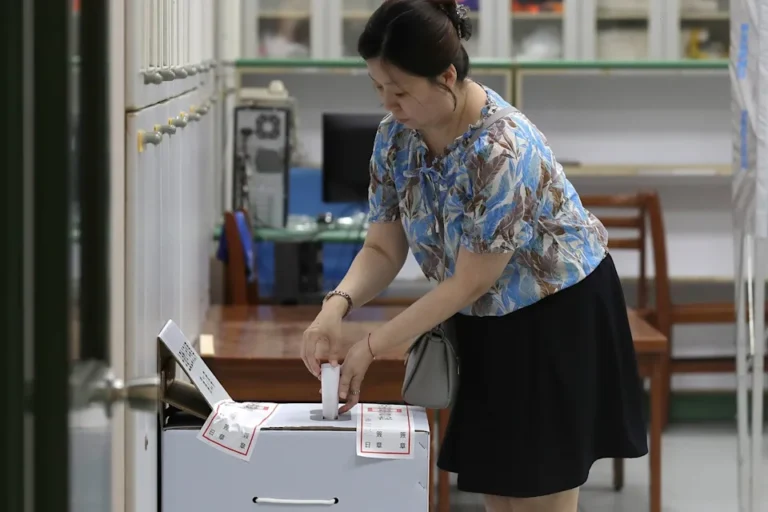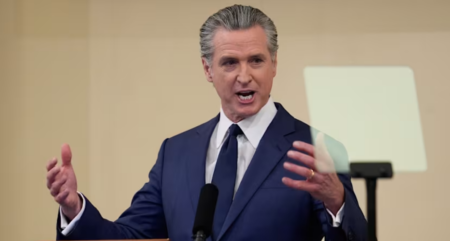Voters in Taiwan went to the polls Saturday to decide whether seven opposition lawmakers should be recalled and whether the country should revive nuclear power, just three months after the last reactor was shut down.
The recall efforts, the second this month, aim to help the ruling party regain control of the legislature after losing its majority in the 2024 elections. However, the chance of success appears low. On July 26, all 24 opposition Nationalist Party members survived the first round of recall votes.
The Democratic Progressive Party (DPP) won the presidency in 2024, but neither the DPP nor the opposition Nationalists secured a majority in the 113-seat legislature. The Nationalist Party, also called the Kuomintang (KMT), holds 52 seats, one more than the DPP. To pass legislation, the Nationalists have formed a partnership with the Taiwan People’s Party, frustrating the ruling DPP.
The DPP has been gradually phasing out nuclear energy, which once supplied about 20% of Taiwan’s electricity. Taiwan’s last operating nuclear reactor was shut down in May after 40 years of service. In the same month, the legislature approved a proposal from the Taiwan People’s Party to hold a referendum on continuing nuclear power. The measure has the support of the Nationalists.
The referendum asks voters if the recently closed Maanshan nuclear plant, also known as the third nuclear power plant, should continue operating, provided regulators confirm its safety. The plant is located near Taiwan’s southern tip. Supporters of nuclear energy argue that restarting the plant could lower electricity costs and meet the rising demand for power, especially from artificial intelligence applications.
Taiwan-born Nvidia founder Jensen Huang expressed support for nuclear energy when asked upon arriving in Taipei on Friday. Highlighting AI’s growing energy needs, he said all energy options should be considered. “There are excellent technologies for sustainable energy — solar and wind,” Huang said. “And nuclear is an excellent option.” In May, Nvidia announced a partnership with Taiwan electronics manufacturer Foxconn to build an AI supercomputer for local researchers and companies, emphasizing the country’s need for stable and reliable power.
The recall votes and nuclear referendum reflect broader political and energy debates in Taiwan. The ruling DPP faces challenges in maintaining influence in the legislature, while the public weighs safety, cost, and energy security in deciding the nuclear issue. Voter turnout and the results of Saturday’s votes will signal the public’s stance on both political accountability and Taiwan’s energy future, potentially shaping policy decisions for years to come.







